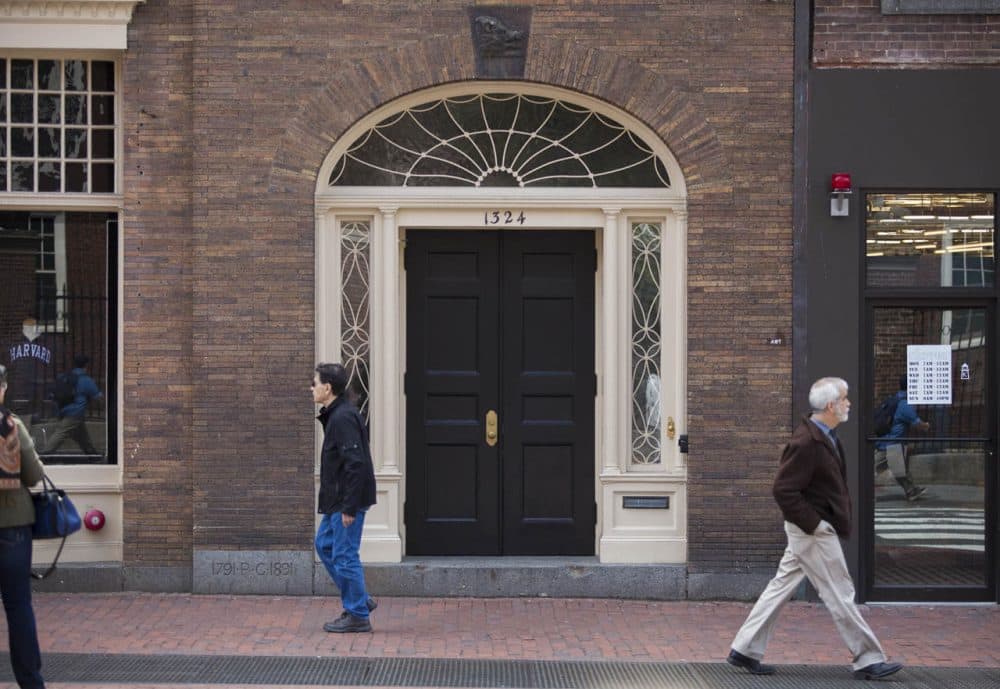Advertisement
Harvard Faces Lawsuits Over School Sanctions Against Single-Gender Social Clubs

Harvard is now facing state and federal lawsuits over imposing sanctions against students who participate in single-gender social clubs.
The sanctions bar members of single-gender social clubs from holding campus leadership positions, including on varsity sports teams, and would not allow the university to endorse such students for prestigious fellowships like the Rhodes scholarships.
Harvard implemented the sanctions amid reports of sexual assaults at parties at all-male final clubs.
A spokeswoman from Harvard University issued this statement Wednesday:
“Harvard College seeks to build a community in which every student can thrive, and it does so on a foundation of shared values, including belonging, inclusion, and non-discrimination. The policy on Unrecognized Single-Gender Social Organizations (USGSO) is designed to dedicate resources to those organizations that are advancing principles of inclusivity, while offering them supportive pathways as they transform into organizations that align with the educational philosophy, mission, and values of the College.
In accordance with these values, and for more than a century, Harvard has not had a Greek system on campus. As President Faust and the Harvard Corporation said in December of 2017, it is the expressed expectation of this community that Harvard should not become a Greek school. Harvard should not have to change its commitment to non-discrimination and educational philosophy for outside organizations that are not aligned with our long-standing mission.”
Guests
Emma Quinn-Judge, a partner at the law firm of Zalkind Duncan & Bernstein, the firm in Boston that is representing the plaintiff in the state case
Rebecca Ramos, a 2017 Harvard graduate and former president of the college’s Delta Gamma chapter
Interview Highlights
On the impacts these sanctions have had on sororities at Harvard:
Ramos: "Almost every single women's organization on Harvard's campus has been forced to close or to start accepting men which goes against the ideals upon which each of these organizations were founded. ... Over a quarter of the student body were represented in one of these organizations. So numerically it's had a huge impact."
"More personally, it has had a huge impact on myself, on my sister who is currently a senior at Harvard, and just on a lot of the women's opportunities to find the support networks both during their college years and beyond."
Quinn-Judge: "There is now just one remaining chapter of a sorority [on campus] and that chapter even briefly closed ... but its membership was about 160 at its peak and it's now down to fewer than 20. On the other hand, there, by my count, remain six male final clubs and three fraternities. Not all people will join single-sex organizations, but there are many opportunities at Harvard for men to do so and very few are women."
On how the lawsuit alleges the sanctions violate the Right To Assembly in the Massachusetts Constitution:
Quinn-Judge: "Just as we protect free speech, we protect people's ability to join together in pursuit of a wide variety of political, social, economic, whatever they may be... by saying to women that they can't associate in a group that just is constituted of women, [Harvard] is violating that constitutional right."
"Under our state law, we are asserting that Harvard has violated the student's rights by implementing a policy that is threatening intimidating and coercive... Not only implementing a policy but by the way the policy has been unrolled and enforced."
On how they think Harvard should work to reduce sexual assaults on campus:
Ramos: "I think that it really comes down to opening up the dialogue across all services. One of the main issues that we've talked about is the stigmatization and culture of fear that Harvard has created with regards to social organizations and social life in general at the college. I think that really limited a lot of the honest dialogue with regard to sexual assault and safety on campus."
"A lot of these organizations, sororities, fraternities, final clubs have really great resources both in terms of support but also in terms of prevention ... which is where the conversations really need to start. I think that taking away these spaces really go it really is detrimental to the to Harvard's attempt to end sexual assault on campus."
This segment aired on December 5, 2018.

